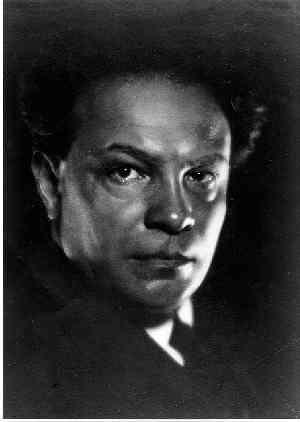Composed over the course of 12 tumultuous years – from Italy’s disastrous participation in the First World War (1915-6) to the consolidation of Mussolini’s regime (1928) - the Roman Trilogy shows the steady evolution of an eclectic and in some respects pioneering musical talent. But largely on account of being pleasing to follow, especially in their dutiful evocation of picturesque views and scenes (Roman maritime pines, pictured below), they have condemned Respighi to the “middlebrow Easy Listening” category in the minds of many influential critics and punters alike.
 Respighi, who died in 1936 well before the introduction of the hateful leggi razziali (anti-semitic racial laws) of 1938, and the declaration of war on the Allies in 1939, has also suffered from an unfair – and totally undocumented – suspicion: that he was too chummy, and too accommodating, with the Fascist regime.
Respighi, who died in 1936 well before the introduction of the hateful leggi razziali (anti-semitic racial laws) of 1938, and the declaration of war on the Allies in 1939, has also suffered from an unfair – and totally undocumented – suspicion: that he was too chummy, and too accommodating, with the Fascist regime.
While Mussolini and his cultural advisors did everything they could to “get him on board”, Italy’s most distinguished living composer kept a very careful distance from the regime. The third part of the Roman Trilogy – Feste – is especially singled out by some critics for having pandered to Il Duce’s ridiculous notion of the spiritual link between Fascism and Ancient Rome. The alleged evidence was contined in some of the more bombastic passages, but these were almost certainly done tongue-in-cheek, in the same way that Shostakovich did in order to get some of his compositions past the Soviet cultural commissars.
Fortunately, Nupen’s documentary runs in complete contrast to the conventional view of Respighi, whose output was not only eclectic, but also prolific: nine operas and five ballet suites, 10 concerti for violin or piano, 20 odd chamber compositions of note, not to mention dozens of choral works. While eschewing the more radical technical innovations typical of those pre-war composers such as Stravinsky and Schoenberg whose reputations have so overshadowed his own, we can now see much more in common with some of the most compelling composers of the post-war era, from Messaien to Britten to Arvo Pärt, who like Respighi dedicated much time and effort to researching, reinventing and/or rearranging the music of a much earlier era.
Long before the Renaissance and Baroque eras became fashionable as they are today, Respighi was busy digging out the lost – or ignored - manuscripts of Monteverdi, Vivaldi and Benedetto Marcello, and reappraising them for what they were worth. Nupen's film does much the same for Respighi himself.
Ottorino Respighi: A Dream of Italy is on BBC Four this evening at 7.30 and then on BBC iPlayer.













Comments
Add comment